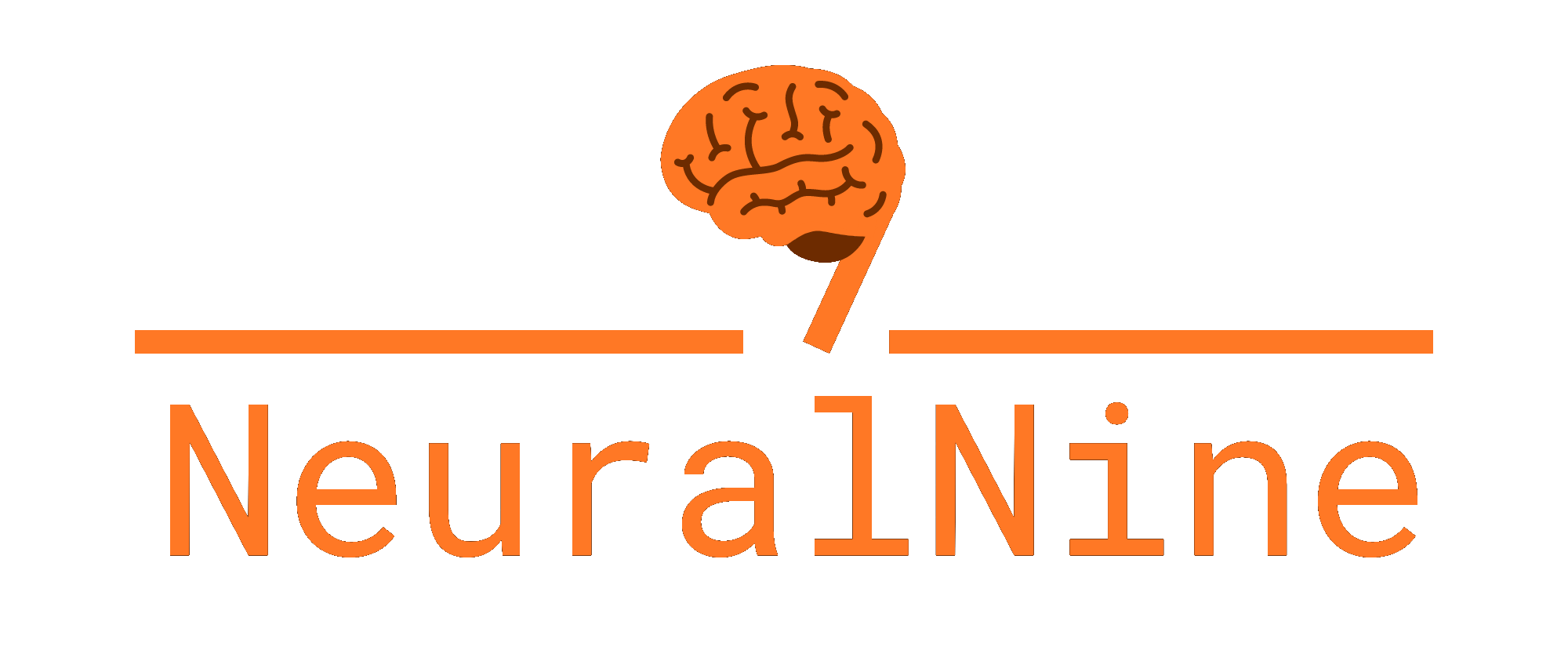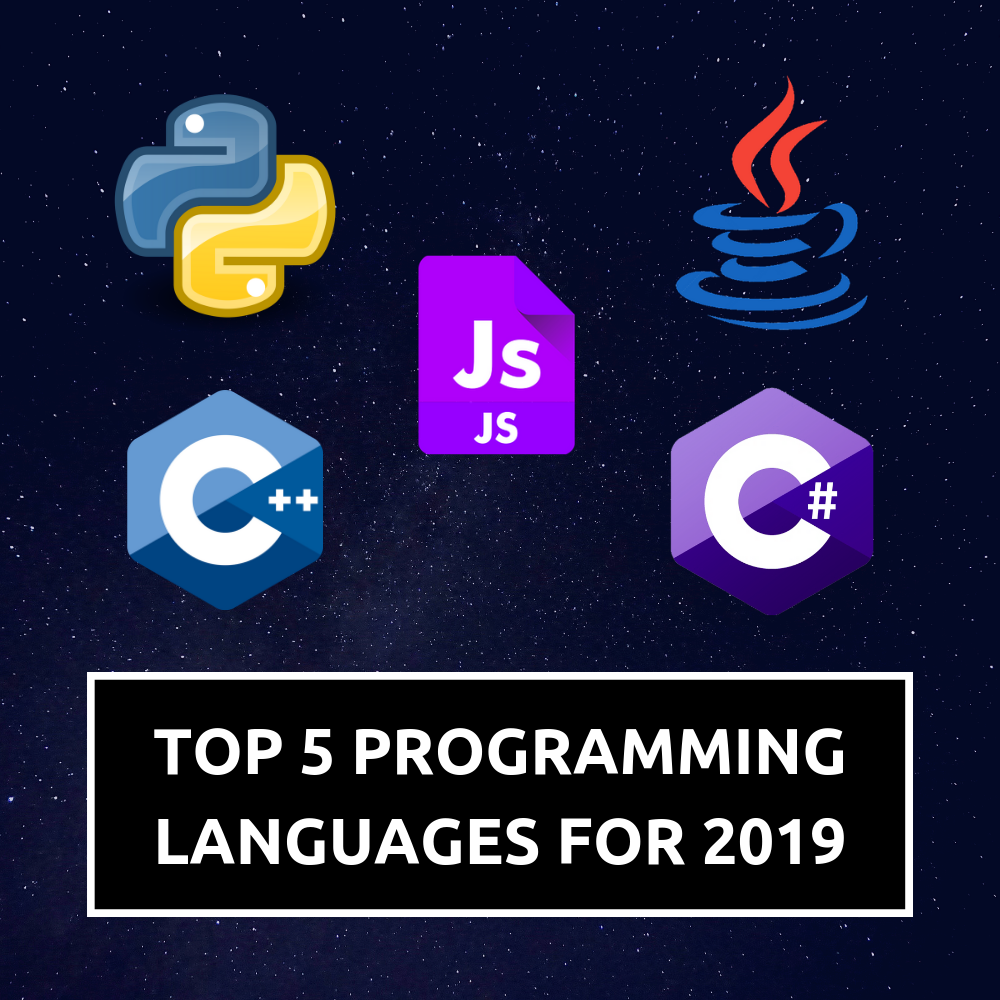Introduction
Right now, there are hundreds, if not thousands, of different programming languages out there. Some of them are used quite frequently and some of them have been forgotten years ago. Especially for beginners and amateurs it is quite difficult to choose the right programming language. Even though there is no “best” or “right” programming language in general, there are definitely best suitable languages for specific purposes.
In this blog post we are will take a look at the “best” programming languages to learn in 2019 depending on various factors. The criteria will be speed, general-purpose, community, simplicity, future potential and, because this blog is focused on artificial intelligence, the suitability for machine learning.
Python
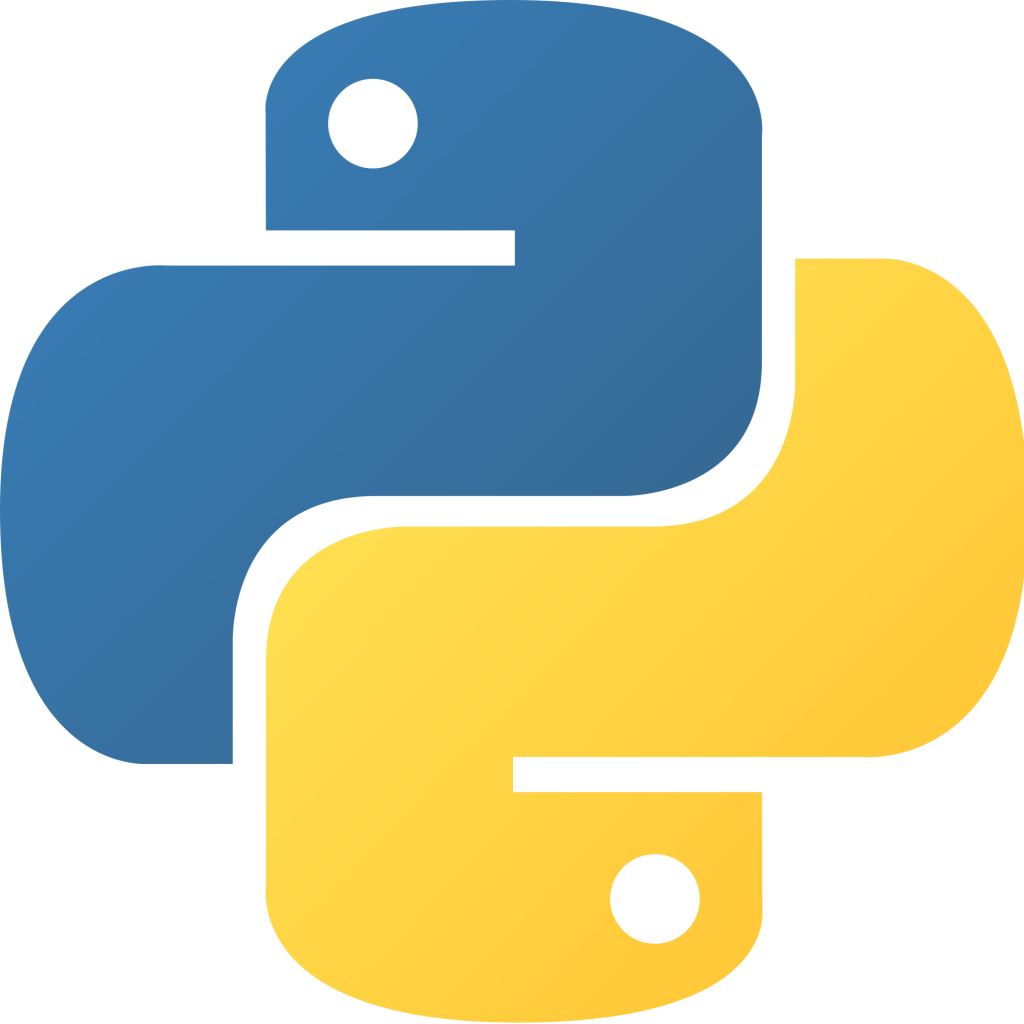
I think this one is obvious and it is also my personal favorite. Over the last couple of years, Python’s popularity skyrocketed. When you take a look at the TIOBE-Index or other rankings, like GitHub’s or StackOverflow’s, you will notice that Python is always among the first places. And there are good reasons for that.
General-Purpose
First of all, Python has a huge variety in its fields of application. It is a general-purpose programming language and it is used all across the industry. You can build solid web-applications (Pinterest was built with Python), write network scripts, analyze big data or build machine learning models. Especially the last point is crucial for Python’s success. This brings us to the next point.
Lingua Franca of Machine Learning
If you are considering working in the field of machine learning or artificial intelligence, there is no way around Python. With its simplicity and its huge arsenal of powerful libraries, it is the number one language for data science and machine learning. Great frameworks like TensorFlow were written in Python.
Simplicity
One of the best reasons for beginners to learn Python is its simplicity. Some code samples actually read like English texts. It is extremely easy to learn and at the same time it is a powerful language. Of course this means that there is less room for complexity and more things are automated.
Community
Since Python is such a popular language, it has a huge community and a lot of people are writing code in this language. Therefore, you can look up almost every problem you encounter online and someone will probably already have solved it already. This shouldn’t be taken for granted, as it is not the case for less popular languages.
Downsides
For machine learning and scientific computing Python is probably the best choice, as it outcompetes alternatives like R and MATLAB. Nevertheless, it also has its limits. For example, you should not use Python for resource-intensive tasks like 3D-Modelling, complex videogames or video editing software. Also it is a high-level language, which means that it is not suited for hardware-related programming. Another problem is that Python’s flexibility leads to more runtime-errors and less structure. Thus, it is probably not the best choice for big enterprise applications.
Summary
BEST FOR MACHINE LEARNING!
JavaScript
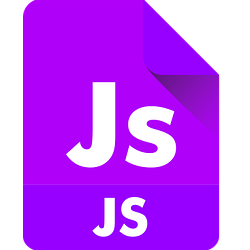
According to various different rankings, JavaScript is the most popular programming language by far. It is the ONE language every browser is able to understand and it is used all over the web. This language is becoming larger and larger.
General-Purpose
Although JavaScript is mostly used in the browser, it is becoming more and more of a general-purpose language. You can use it for front-end development to animate your website or in your back-end to build serious web applications. Additionally, there are a lot of libraries and frameworks like TensorFlow.js, Brain.js and AngularJS that extend the fields of application.
Lingua Franca of The Web
In the same way that Python is the lingua franca for machine learning, JavaScript is for the web. When you work on a modern website or web application, I can almost guarantee you that you will use JavaScript. For animations and design you probably use jQuery, Bootstrap or something else that is powered by JavaScript. It doesn’t matter if you use Django, Swing or PHP as your back-end. You will still use a lot of JavaScript for your front-end. Also, with Node.js, a lot of modern applications are run with JavaScript in the back-end as well. Learning this language in combination with HTML and CSS can’t be a wrong decision.
Client-Side Speed
Since JavaScript is oftentimes running code in the front-end, it is very fast and doesn’t need to communicate with a server. It is possible to build, train and use a neural network by only using JavaScript in the front-end.
Community
Similar to Python, the JavaScript community is huge. The language is extremely popular and there is almost no way you will have a problem that wasn’t solved on StackOverflow already. Almost 50% of the repositories online are written in JavaScript. Support and a strong community are always there for you.
Downsides
Although it is a general-purpose language, JavaScript’s focus is still the web for most of the time. It is not suitable for enterprise applications, serious AAA-games or hardware programming. As a programmer, you don’t want JavaScript to be your primary language. Nevertheless, every computer scientist should at least be able to code some basic JavaScript. Some people however, think that the language is not good enough and will be replaced by a better alternative soon.
Summary
BEST FOR WEB DEVELOPMENT!
Java

Java is the one language which is taught first at most universities and also the most used language in professional businesses. It is perfectly suited for enterprise applications. The programming language is very structured, offers a huge arsenal of libraries and is (unlike C#) platform-independent.
General-Purpose
Yes, Java is also a general-purpose language. You can use it to build huge professional web applications, to program robots or to build a successful videogame like Minecraft. Java is everywhere and it is very popular. It can be used for all kinds of things and unlike Python it is actually quite fast.
Platfrom-Independence
Of course, Python is also platform-independent. But especially in the enterprise sector it is tremendously important to be flexible. If you code in C#, you are basically dependent on Microsoft products and have to pay a lot of licensing money. With Java you can use a Linux server, Apple notebooks and any other software you like.
Job Market
If you are a great Java developer there is almost no way that you will end up without a job. Across the world, Java is one of the most asked for programming languages in job offers. Since it is very popular for enterprise applications, a lot of big companies employ plenty of Java programmers.
Community
Once again, the community of this language is phenomenal. The support you find online is very professional and helpful. Since Java is used by large corporations, this isn’t a surprise. Also, there are a lot of powerful libraries and frameworks for this language.
Android Development
We could say that Java is the lingua franca for Android development. Although there is Kotlin as a modern alternative, Java is still the most popular choice and with tools like Android Studio, you can build great apps with little time and effort.
Downsides
Java might be fast but it is still not fast enough for many things. In comparison to languages like C or C++, it is quite slow and abstract. Also, it is not very specialized. It may be platform-independent and general-purpose but it lacks a field that it suits best. For machine learning applications there might be better choices.
Summary
BEST FOR ENTERPRISE APPLICATIONS!
C / C++
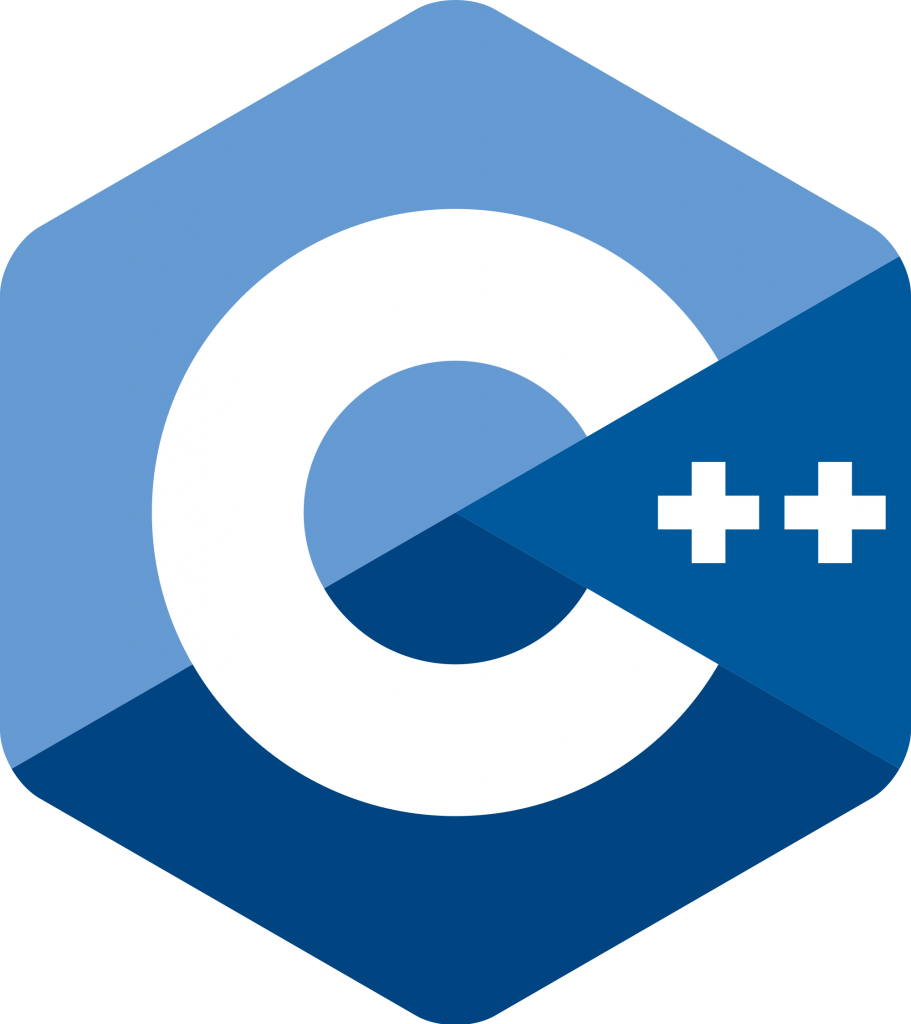
Actually C and C++ are quite different. C is a procedural language whereas C++ is object-oriented. Nevertheless, I combined them for this post because their benefits and disadvantages are pretty similar. Both languages are quite old but still very popular and on the rise. They are robust, efficient and quite complex.
Speed & Efficiency
C and C++ are both tremendously fast and efficient languages. A lot of things need to be handled manually and if done right, the software becomes very resource-saving. You can manage memory allocation by hand and powerful tools like pointers and references allow the most efficient use of hardware.
Hardware Programming
Whenever you need low-level programming of microchips or other hardware C and C++ should be your choice. Because so many things are done by hand, the developer has a lot of flexibility and choice in his approach. You can manipulate memory addresses and dig deep into your hardware.
Old but Gold
Although these languages are quite old, they are still highly used. A lot of professional software was written in C or C++ for a lot of money. Therefore, many corporations employ developers to maintain and extend the software instead of building a new one with Java or Python. Also certain things just cannot be done with such modern high-level languages due to lack of speed and possibilities.
Portability
Both languages can run almost everywhere. You can run C or C++ code on desktop computers, servers, microwaves, ATMs and many more devices. Unlike Java or Python, they don’t need a runtime environment. They are platform-independent unless you use some special libraries.
Deep Understanding
By coding in C++ but especially by coding in C, you start to understand how computers work at the lowest levels. Almost everything has to be done manually and even a simple calculator becomes a challenge. It is the complete opposite of Python, where everything is done for you. Actually Python itself was written in C. If you want to build deep understanding, you might want to look into the language.
Downsides
The biggest downside of C and C++ is their complexity. For a beginner those two languages are extremely confusing and irritating. Everything has to be done by hand and this makes it very hard to code even simple applications. The learning curve is much flatter. Also, those languages are more suited for resource-intensive tasks like 3D-games or hardware-related applications.
Summary
BEST FOR HARDWARE AND SPEED!
C#
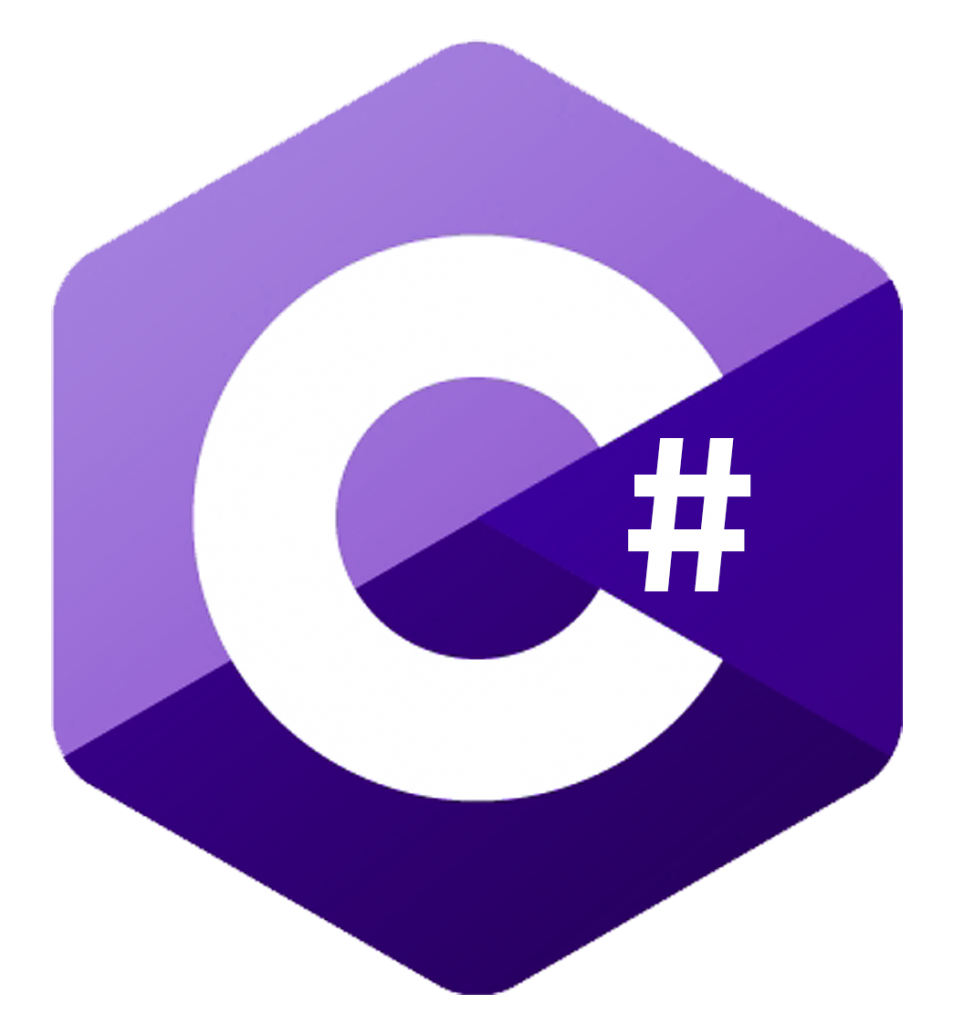
Personally, I am not a big fan of C# and .NET. Nevertheless, in some cases it really makes sense to learn C#. It is the language of Microsoft and the only serious competitor of Java in the enterprise area. Also it is quite popular for game development.
Lingua Franca of Microsoft
If you are a Microsoft fan and want to use their products in exchange for a lot of money, you should probably learn to code in C#. The language itself is quite powerful and efficient and its syntax is very similar to Java’s. Since it is the proprietary language of Microsoft it makes sense to use it to maximize the synergy of your systems.
Speed & Efficiency
Although it can never compete with C or C++, this language is still quite faster than Java and other languages. Also it is less error-prone and easy to use. It offers a lot of powerful structures and programming concepts and it is developing faster than its competition.
Game Development
With excellent frameworks like Unity or XNA, C# has developed to a major language for game development. It is perfectly suitable for complex and good-looking AAA-games. Unlike, C++ it allows you to build games pretty quickly and easily.
Job Market
Similar to Java, with good C# skills it is not very easy to end up jobless. There a plenty of corporations which are using professional Microsoft infrastructure and need specialized experts. If you are interested in this area C# is a very good choice.
Downsides
Actually, C# is a great programming language. The only problem is that it is too specialized on Microsoft. They are trying to change that by introducing .NET-Core but still it is very dependent on Windows. If you don’t care about other operating systems, portability and flexibility, this language offers a lot of possibilities. For purposes outside of Microsoft, enterprise or game development it is quite useless though.
Summary
BEST FOR MICROSOFT AND GAME DEVELOPMENT!
Notable Mentions

Rust
A modern alternative to C and C++ which is very efficient and suitable for hardware-related programming.

Swift
The best language for Apple development. You can develop apps for the iPhone and it is much easier than Objective-C.
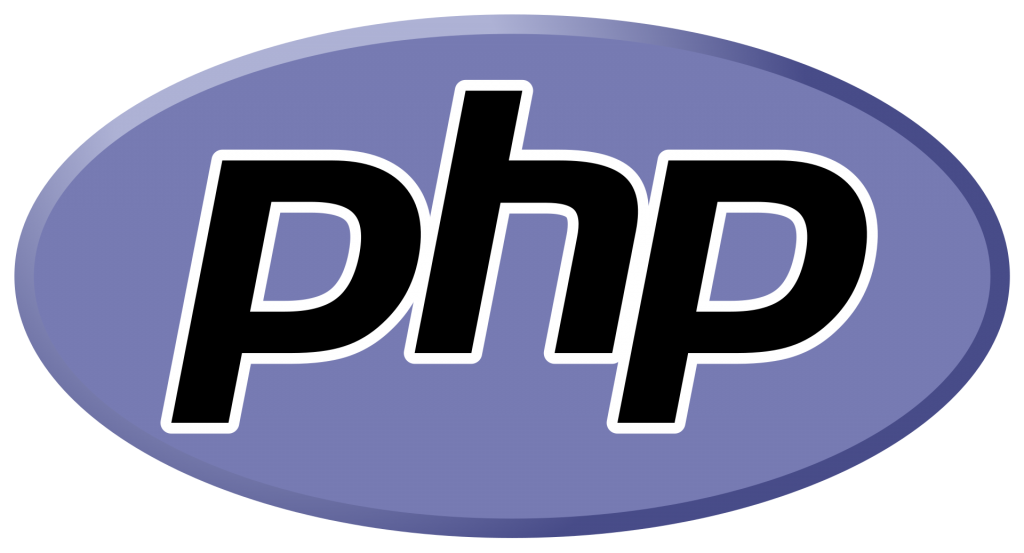
PHP
An old but still widely used web-programming language for the backend. Plenty of powerful frameworks.
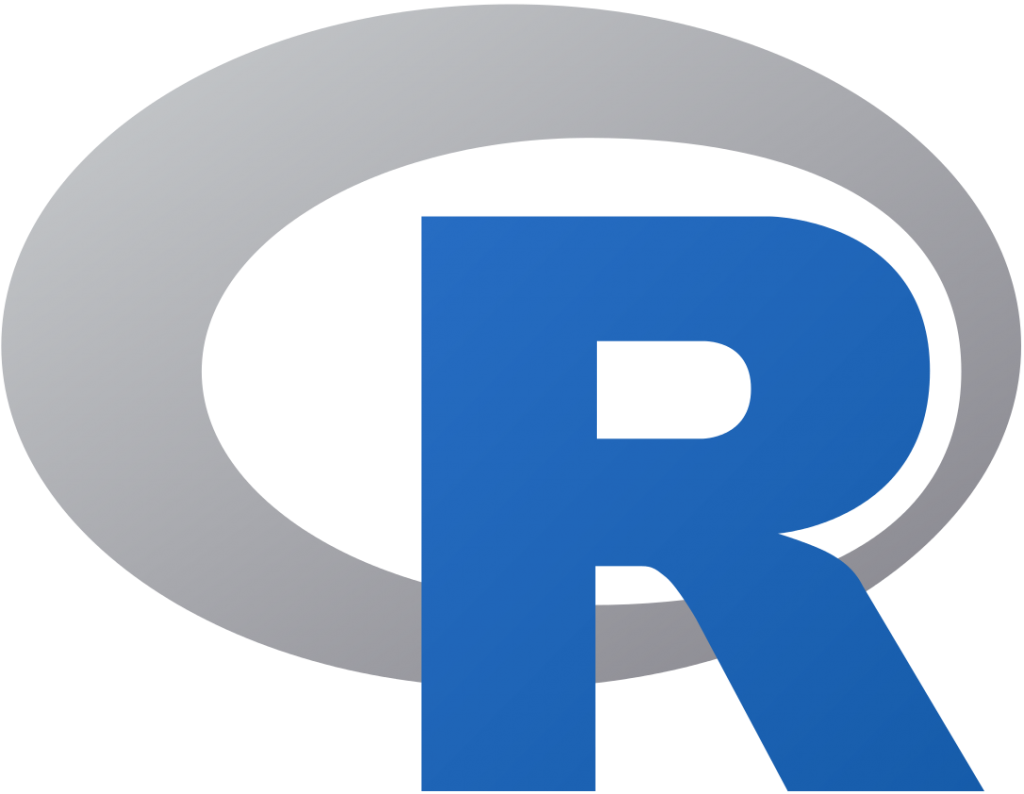
R
A statistical programming-language that is very specialized. It is even slower than Python but oftentimes used for machine learning.
I hope you enjoyed this top list. If you have any questions or suggestions, let us know in the comments!
